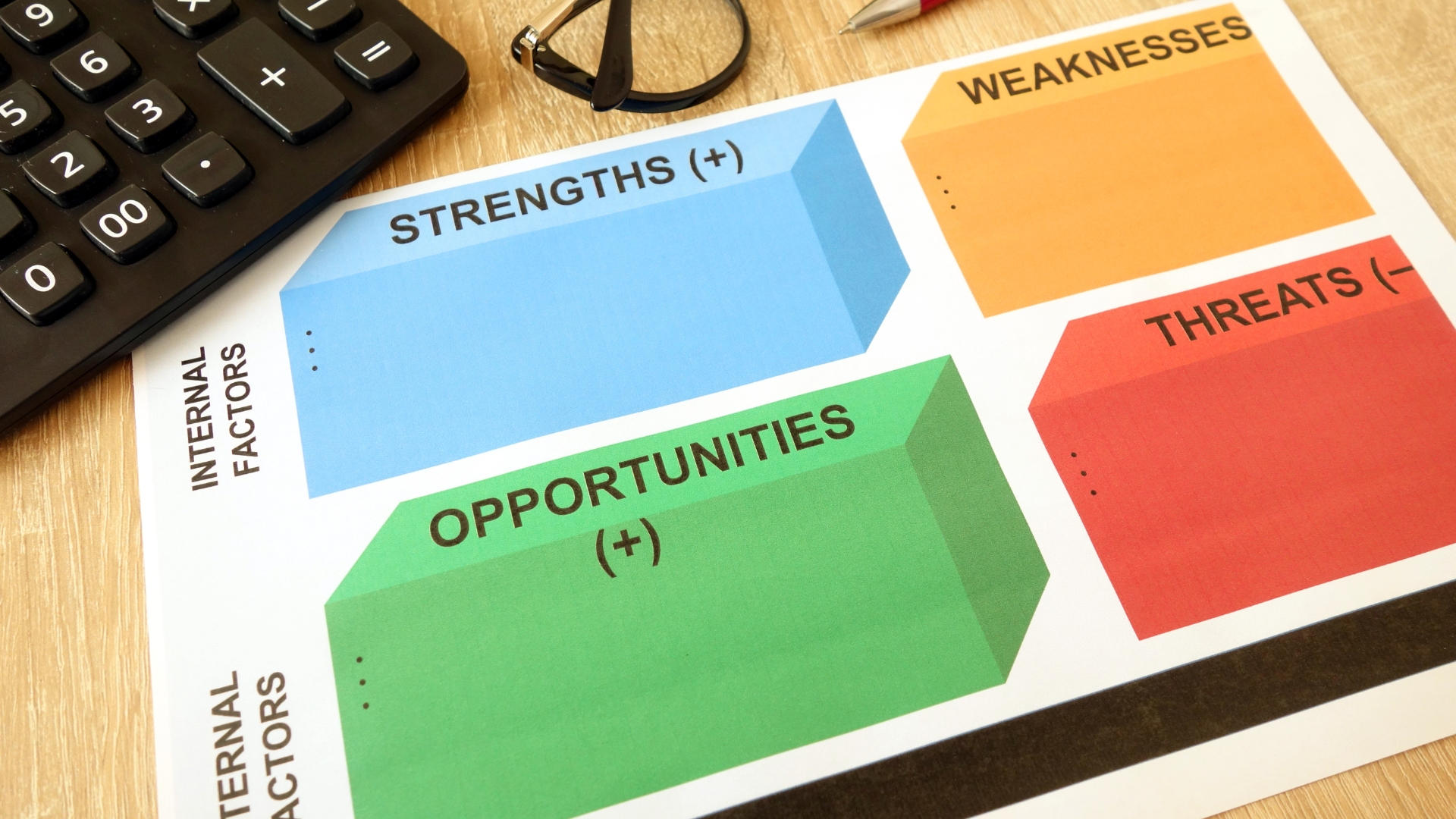What are Your Strengths and Weaknesses in Job Interview question is a critical step in the hiring process, and many candidates find them to be intimidating and nerve-wracking. However, with proper preparation and self-awareness, you can master the art of job interviews and increase your chances of success.
One common question that often stumps candidates is, “What are your strengths and weaknesses?” This question provides an opportunity for you to showcase your skills and abilities, but it can also be a challenge to navigate.
In this blog, we will discuss strategies to help you effectively communicate your strengths and weaknesses in a job interview, allowing you to leave a lasting impression on potential employers.

Stuck on the “Strength & Weakness” interview question?
Land your dream job with this winning strategy!
Whether you’re a recent graduate or a seasoned job seeker, that dreaded “strengths and weaknesses” question always seems to pop up.
It can be tricky to answer – you want to showcase your value without seeming arrogant and acknowledge areas for improvement without raising red flags. Fear not, ambitious job hunters! This post is your secret weapon.
Here, we’ll break down a simple yet powerful approach to tackling this question, tailored specifically for students aiming for high-paying positions.
Learn how to highlight your strengths, confidently address weaknesses, and leave hiring managers impressed with your growth mindset and potential. Get ready to ditch the interview jitters and land your dream job with this winning strategy!
Strengths:
Fast learner: I’m a quick study! I can pick up new things quickly and adapt to new situations easily. For example, in my last project, I learned a new software in just a week and used it to complete a complex task ahead of schedule.
Team player: I love working with others and sharing ideas. In my group project, I helped my team members understand difficult concepts and everyone contributed to a great final presentation.
Problem solver: I’m good at figuring things out and finding solutions. Whether it’s during a group project or when I encounter a technical issue, I enjoy tackling challenges and coming up with creative solutions.
Results-oriented: I get things done! I set goals and work hard to achieve them. In my last summer job, I went above and beyond my sales target by 20%.
Weaknesses:
Sometimes I say yes to too much: I like to help and get involved, but sometimes I take on more than I can handle. I’m learning to better manage my time and say no when needed.
Public speaking can make me nervous: Presenting in front of a large group can be a bit scary. I’m working on this by joining a public speaking club and practicing more.
I’m still learning: As a student, I have a lot to learn and experience. But I’m eager to grow and expand my knowledge, and I’m always looking for ways to improve.
Remember Points:
- Use simple and clear language.
- Highlight strengths relevant to the job you’re applying for.
- Be honest about your weaknesses, but show that you’re working on improving them.
- Speak with confidence and enthusiasm.
Bonus Tips:
- Briefly mention any relevant achievements or awards you have earned.
- Express your genuine interest in the company and the position.
By following these tips, you can increase your chances of landing that high-paying job! In the next section, we will explore strategies for identifying and highlighting your strengths effectively in a job interview.
How to Identify your strengths in job interviews
Discover Your Strengths and Weaknesses
To effectively communicate your strengths during a job interview, it is important to first identify what they are. Understanding your strengths will not only help you to confidently talk about them, but it will also allow you to showcase how they align with the needs of the employer.
One effective way to identify your strengths is to reflect on your past experiences and achievements. Consider times when you excelled in a task or received positive feedback from others. These instances can reveal skills and abilities that you possess.
Additionally, think about what comes naturally to you and what tasks you enjoy doing the most. These can be further indications of your strengths.
Another helpful strategy is to seek feedback from others. Talk to colleagues, mentors, or friends who can provide insights into what they see as your strengths. Their perspectives can offer a fresh and objective view of your abilities.
Furthermore, conducting a self-assessment can be beneficial. Various online resources and assessments can help you identify your strengths and provide a comprehensive view of your skills and qualities.
By taking the time to identify and understand your strengths, you can effectively communicate them to potential employers and position yourself as a strong candidate for the job.
Showcasing your strengths in an interview
While it’s important to address your weaknesses during a job interview, it’s equally vital to highlight your strengths. Employers are looking for candidates who not only acknowledge their weaknesses but also demonstrate their unique skills and abilities.
To effectively showcase your strengths, start by identifying your key strengths before the interview. Reflect on your past experiences and accomplishments to pinpoint the areas where you excel. Consider the skills or qualities that set you apart from other candidates.
During the interview, incorporate your strengths into your responses by providing specific examples. Focus on how your strengths have contributed to your success in previous roles and how they can add value to the position you are applying for.
Additionally, tailor your strengths to align with the specific job requirements. Highlight how your strengths directly relate to the responsibilities and challenges of the role. By doing so, you show the interviewer that you are not only aware of your strengths but also understand how they can benefit the organization.
Remember, confidence is key when showcasing your strengths. Speak clearly, maintain eye contact, and use confident body language to make a lasting impression.
By effectively highlighting your strengths, you show the interviewer why you are the ideal candidate for the job.
Recognizing and addressing your weaknesses
While it may not be easy to discuss your weaknesses during a job interview, it is essential to show self-awareness and a willingness to grow. Employers value candidates who can acknowledge their weaknesses and demonstrate a commitment to overcoming them.
To identify your weaknesses, start by reflecting on areas where you tend to struggle or receive feedback for improvement. Consider constructive criticism from colleagues or previous supervisors. This information can give you valuable insights into areas you may need to work on.
It is important to choose weaknesses that are relevant to the job you are applying for. For example, if the position requires strong attention to detail, discuss your weakness in organizing complex tasks. Be honest, but also show how you have taken steps to address and improve upon your weaknesses.
Remember, addressing weakness is not about highlighting your flaws, but rather showcasing your determination to grow and develop professionally. The key is to frame your weaknesses in a positive light, emphasizing your commitment to continuous improvement.

How to address weaknesses during an interview
When it comes to addressing weaknesses during a job interview, it’s important to strike a balance between honesty and positivity. While you want to be truthful about your areas for improvement, you also want to demonstrate a willingness to learn and grow.
- Firstly, when preparing for the interview, identify one or two weaknesses that are not critical to the job you are applying for. This shows that you are self-aware and actively working on self-improvement. Next, focus on the steps you have taken to overcome these weaknesses. Share examples of how you have sought feedback or enrolled in training programs to address these areas.
- When discussing your weaknesses during the interview, it’s important to emphasize how you have successfully managed or minimized these weaknesses in the past. This shows your adaptability and determination to overcome challenges.
Remember, the key is to frame your weaknesses in a positive light and demonstrate your commitment to personal and professional growth. By constructively addressing your weaknesses, you show the interviewer that you are a self-motivated and diligent candidate.
Importance of self-awareness in job interviews
A key element in effectively communicating your strengths and weaknesses during a job interview is self-awareness. Understanding your own capabilities and areas for improvement is essential in presenting yourself confidently and authentically to potential employers.
By taking the time to reflect on your experiences, skills, and personal characteristics, you can gain a clear understanding of your strengths and weaknesses. This self-reflection will enable you to articulate your strengths with conviction and provide examples that demonstrate your abilities.
Additionally, being aware of your weaknesses shows honesty and a willingness to improve, which can be viewed positively by employers.
Self-awareness also allows you to align your strengths and weaknesses with the specific requirements and values of the company you are interviewing with. This alignment shows that you have done your research and have a genuine interest in the role and organization.
Practicing self-reflection for continuous improvement
Self-reflection is an essential step in identifying your strengths and weaknesses. To master the art of job interviews, it’s important to continuously assess your skills and abilities and seek opportunities to grow.
Start by analyzing your past experiences and performance. What were the areas where you excelled? What were the challenges you faced and how did you overcome them? By understanding your past achievements and areas for improvement, you can better articulate your strengths and weaknesses during an interview.
Another way to practice self-reflection is by seeking feedback from others. Reach out to mentors, colleagues, or friends who can provide constructive criticism. Ask them to highlight your strengths and weaknesses from their perspective. This external viewpoint can offer valuable insights and help you gain a well-rounded understanding of yourself.
Lastly, make personal development a priority. Take proactive steps such as enrolling in relevant courses, joining professional organizations, or seeking mentorship. Continuously investing in your personal growth will not only enhance your skills but also demonstrate your commitment to self-improvement during an interview.
By regularly practicing self-reflection and striving for continuous improvement, you will not only discover your strengths and weaknesses but also showcase your dedication to professional growth. Stay tuned for more strategies for mastering the art of job interviews!
Learn More Job Interview Tips
- Resume Definition: Meaning, Purpose, Types, Uses, and Importance
- The Ultimate Guide to Understanding the Cover Letter Definition
- How to Spot and Deal with Recruiters Lies in Job Interviews
- Federal Bank Interview Secrets: Unveiling the Keys to Success
- Things You Should Never Say in a Job Interview
- How to Write a Cover Letter and Pro Tips in 2024
- How to Answer for Tell Me About Yourself Question
Conclusion for the Question “What are Your Strengths and Weaknesses in Job Interview
In conclusion, mastering the art of job interviews goes beyond just presenting your skills and experience. It requires a deep understanding of your own strengths and weaknesses and a commitment to personal growth.
Self-reflection is key in this process, as it allows you to analyze your past experiences and identify areas where you have excelled and areas where you need improvement.
Seeking feedback from others is also important, as it provides an external perspective that can offer valuable insights. Taking proactive steps to invest in your personal development, such as enrolling in courses or seeking mentorship, showcases your dedication to becoming the best version of yourself.
By embracing personal growth in the job interview process, you not only improve your chances of securing a job but also demonstrate to potential employers that you are committed to continuous improvement. Stay tuned for more strategies for mastering the art of job interviews!